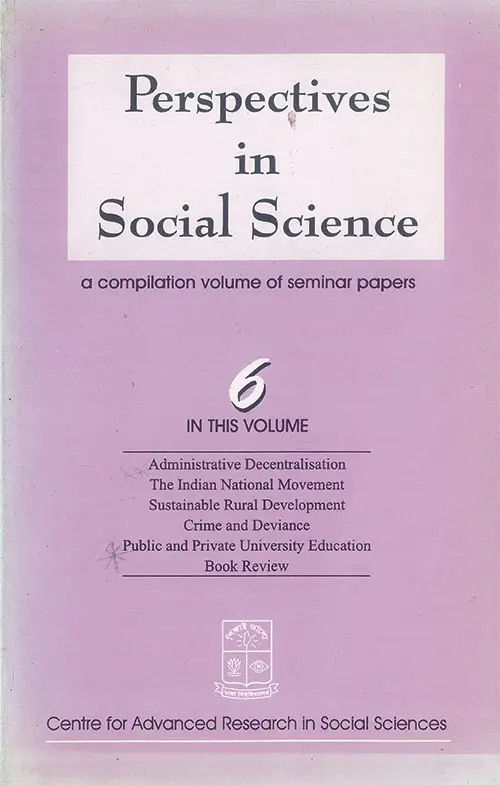
Perspectives in Social Science
Volume 6 August 1999
Perspectives in Social Science
Administrative Decentralisation: Theory and Bangladesh Case
Perspectives in Social Science
Volume 6 August 1999
DOI:
ISSN :
Abstract
Decentralisation is a familiar term. There are a number of justifications as to why decentralisation is preferred over centralisation. A decentralized system provides better service to the customers and enables capacity building at the local level. Participation is also enhanced in the decentralized set-up. There are four major forms of decentralisation. These are deconcentration, delegation, devolution and privatization. Deconcentration and delegation are included within the purview of administrative decentralisation. Evaluating the quality of decentralisation has been a key concern of policy makers and academics alike for quite sometime. Two practitioners have come up with a schema that judges the quality of decentralisation in a country as a function of three crucial variables, i.e., scope, intensity and commitment. The state of administrative decentralisation in Bangladesh is not satisfactory. Departments/directorates/corporations have little operational freedom. Ministries/divisions control functional activities of departments/directorates. Administrative and financial powers of departments/directorates/corporations
